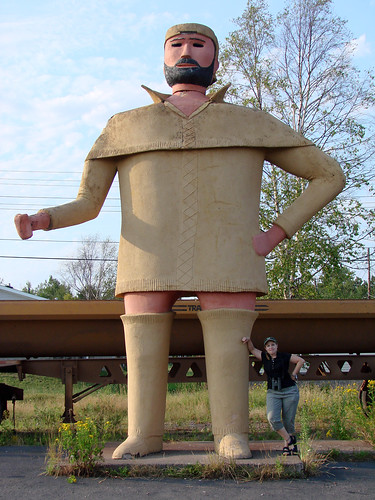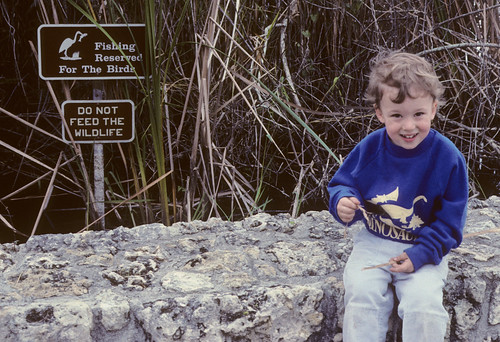Yesterday, the Washington Post published an excellent commentary by my good friend Sharon Stiteler, a ranger with the National Park Service, about what it feels like to get furloughed. Sharon is funny and insightful, and an excellent writer. She articulated the frustration I see in other federal workers.
Back in the 70s, Russ and I were in the Fisheries and Wildlife Department at Michigan State University. As we reached the end of our college years, back when lots of corporations were recruiting people with Russ's background, the ones who took their jobs with the EPA, the US Fish and Wildlife Service, the National Forest Service, or National Parks were committed to public service—trying to clean up the air and water we all needed, to protect endangered species and the critical habitat wildlife and we depend on, and to give visitors on federal land the most wonderful experiences in nature possible. Everyone I know who took one of these jobs was thrilled, even those who had alternatives that would have paid much better.
I was focused on teaching. I’d taken lots of classes, both as an undergrad and graduate student, in Shakespeare and the various zoology disciplines— entomology, herpetology, mammalogy, and especially ornithology—to equip me to be a great elementary school teacher, helping my students kids learn about the world they lived in and have a rich enjoyment of the arts as well. I was trying to give them the tools to lead happy and fulfilling lives.
As someone who came out of a Catholic elementary school, the concept of vocation was strong in me. The vast majority of my own teachers had been nuns who had taken a vow of poverty and worked for no pay whatsoever; our few lay teachers were paid pretty much at the poverty level, too. It’s easy to ridicule Catholic and public schools from back then for all sorts of things, but considering that Russ and I lived in a blue-collar suburb of Chicago and that virtually none of the kids we knew had parents who had gone to college, we ended up with darned good educations that prepared us well for college.
Russ went to public elementary school and we both went to a public high school where teachers were paid better than Catholic schoolteachers, but not nearly as much as they’d have made doing jobs in the private sector. Again, they took their job as a vocation. Our high school teachers did go on strike once in 1968 or 1969—they needed reasonable benefits and were willing to fight for them, but they were happy to work for “enough.” I grew up knowing that reaching for the stars had to do with trying to achieve things that brightened people’s lives or improved the environment we all need. Russ and I knew we’d always need to earn enough money to pay our bills and be able to afford a few lovely experiences in life. But part of wisdom is knowing when you have enough.
Sharon Stiteler articulated that in her Washington Post piece.
None of us took our jobs to get rich. We are public servants, who love what we do. We are incredibly frustrated that we can’t do a fair day’s work for a fair day’s pay.I should have known better than to read the comments on her piece. Most readers were warm and supportive, but a few told her to find a real job, and some even took her words about her job being a vocation to imply that she must be some sort of “trust fund baby,” which she most assuredly is not.
Where have we descended, as a society, when acquiring money is the top goal of so many people? I grew up with the story of Jonas Salk, who developed his polio vaccine at public expense, and gave the patent to the American people. He was a scientist by vocation, and he knew what it meant to have enough. Now scientists working for pharmaceuticals, and CEOs and shareholders, gouge people for critical, life saving drugs, most of which were developed via grants paid for by the very taxpayers they are now so egregiously overcharging.
I’ve heard from people who’ve been at park events led by Sharon Stiteler—she’s knowledgeable and fun, exuding the kind of energy and passion we see in people focused on doing their best in a true vocation. I’ve also watched my husband, a scientist who has dedicated his career at the EPA doing the best science to form the foundation of fair and reasonable regulations to protect our safe, drinkable water supply. When we dismiss federal workers as unnecessary and claim that if they don’t like being political pawns, they should go get a real job, we’re essentially telling the college students of today that money is the only value, and that only a fool or lazy person would take a job with the federal government.
I liked being able to trust that the birds and other wildlife I love—birds that belong to every one of us—and that the food we eat, the air we breathe, and the water we drink are safe, now and into the future. I want the children of today and tomorrow to have the same kinds of wonderful experiences in our national parks that my own children had.
As our population grows and people crave more time with nature, our national parks should be expanding apace, not shrinking and becoming more commercial. Our food, air, water, natural habitats, and wildlife ever more urgently need to be protected, not politicized. Government is supposed to protect these things for everyone. Every one of us, whether we acknowledge it or not, depends on the excellence of government workers. It’s time to recognize this.

